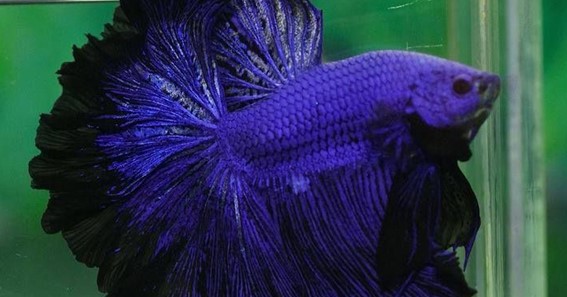Keeping a rare beautiful betta fish as a pet is an amazing experience. It’s also very easy if you have the right information and know-how. However, keeping a Betta as a long-term pet does require some maintenance and care. If you have one of these beautiful little fishes, you probably know this by now. But just in case, here’s what you need to know about maintaining your Betta tank: proper water quality, food, aquarium set-up, and more.
Proper Water Quality
Betta fish are freshwater tropical fish that need warm water with a pH of 7.0-7.5. Your Betta’s water should be clean and filtered, and never acidic or alkaline. Keep the tank’s filter running at all times, and don’t let the pH drop too low. Clean the filter’s filter media often to remove impurities, and never use tap water in your filter. Your Betta fish will get most of its water from the tank, so it should never “drink” from a water bowl. Betta tank water should be the same temperature as your home. If your Betta’s tank is too cold, it might die of stress. Too warm water is also dangerous for the Betta. Betta tank water should be kept between 72°F (22°C) and 78°F (26°C).
click here – Some Unique And Exciting Themes Of Escape Room!
Feed Your Betta
Your Betta will thrive on a diet of tropical flakes and wafers. Betta flakes contain vitamins, minerals, and amino acids that keep your Betta healthy and strong. If you choose to feed your Betta live insects, be careful not to feed them too much. Your Betta will also benefit from weekly partial water changes and low-stress water conditions. Bettas can be fed twice a day, but feed them more often if you want them to produce more waste. You can also feed your Betta crickets, locusts, mealworms, or Dubai roaches.
Set Up an Aquarium
Betta fish need a tank at least two feet long and one foot wide. The tank’s capacity should be around 10 gallons. Betta fish are tropical fish, so you’ll need to set up a tropical tank with a heater, a filter, and a light. Betta fish prefer warm water, so a heat source is essential. A water temperature of around 72°F – 78°F is ideal. Choose an aquatic substrate to line the tank. You can use gravel, sand, or slate gravel. Avoid putting anything that can damage the filter or create anaerobic conditions in the tank. Now get your Betta and its equipment. You’ll need a tank, a heater, a filter, and a light. The tank should be tall enough for the Betta to swim in and long enough for the Betta to swim around in a circle without bumping into the sides of the tank. Make sure that the tank lid fits securely on the tank so your Betta can easily get in and out of the tank.
Setup a Betta Tank
Betta fish are often sold as a pair. This means that you should buy two Betta fish. If you want to keep your Betta fish as a long-term pet, you should get two different species. That way, you can breed them or keep both species separately. If you are just getting a single Betta fish, you can put the fish in a bowl. However, this is not a good long-term solution. It’s best to buy a Betta tank. It’s a small tank that is meant for fish that are meant to live together. There are many different types of Betta tanks on the market. Make sure that the tank you get has the right dimensions and design for your Betta fish.
click here – The Secret to Making Your Betta Fish Look Beautiful
Monitor Temperatures and Equipment
Betta fish are pretty hardy and can survive in a wide range of water conditions. However, it’s still important to monitor the water in your Betta tank and make sure that everything is set up properly. Betta fish are very sensitive to changes in temperature and pH. These are usually detected using an aquarium thermometer and pH test kit. Betta fish can tolerate a wide range of water conditions, but they do better if the temperature is between 75 and 85 degrees Fahrenheit. If the temperature ever gets too hot or too cold, it’s best to fill your Betta tank with water and let it warm up or cool down. You should also make sure that the equipment in your Betta tank is functioning properly. This includes the filter, heater, and lighting. If you notice that anything is not working as it should, you should take immediate action.
Conclusion
Betta fish are extremely easy to care for and can survive in a wide range of water conditions. In fact, Betta fish can survive even in harsh freshwater conditions. Keeping the tank clean and well-maintained is the only thing you need to do to make sure your Betta fish is happy and healthy.
